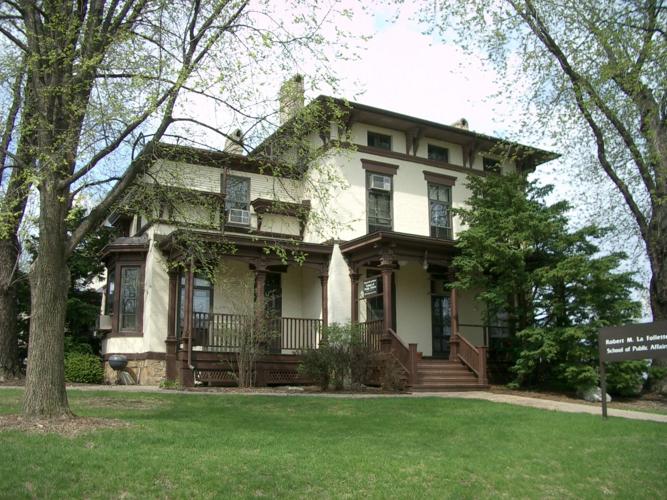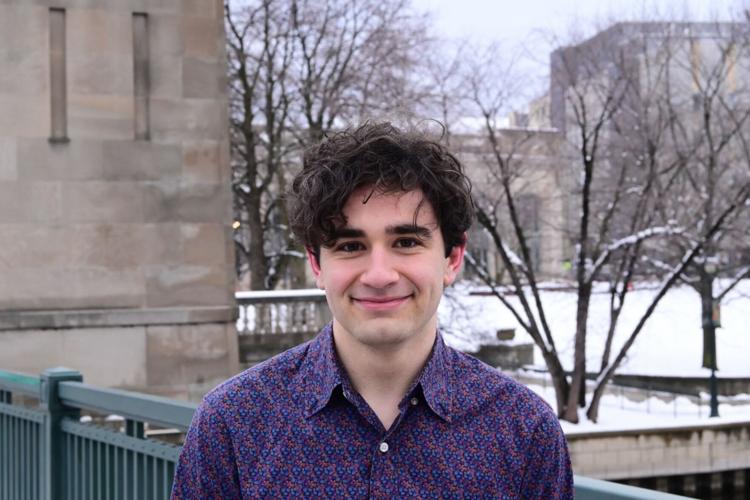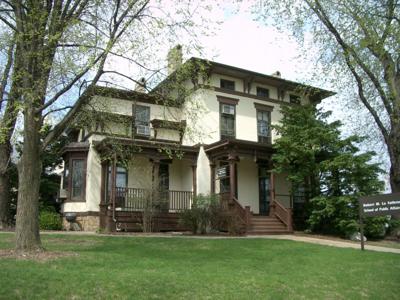Leaders in the La Follette School of Public Affairs at UW-Madison are crafting an undergraduate major in public policy due to increasing student interest, at a time when the general public is polarized or largely turned off by the tenor of politics and government.
“I just find it really fascinating based on where we're at today, in our super-uber-polarized times, in one of the purplest purple states in the union, that we have a tremendous amount of students who are interested in public policy,” said Susan Webb Yackee, director of the La Follette School.
Five years ago the La Follette School — which currently awards only graduate degrees and higher — launched a certificate in public policy that department leaders say has been steadily gaining popularity. Two years later the school made another certificate available, this one focused on health policy. Certificates operate like a minor, a secondary set of courses that provide a basic level of proficiency in a subject area.
The effort to create an undergraduate major is partially a response to the student demand for the two policy certificates. There are almost 500 students taking public policy certificates at UW-Madison and it's one of the fastest growing programs on campus, according to Webb Yackee.
“We saw another 40% increase in our public policy student applications and a 60% increase in our health policy student applications over last year,” she said.
The process of creating a new major takes about two years. If approved by the UW Board of Regents, the La Follette School faculty could launch the public policy undergraduate major in fall 2025.
Sydney Radwin is a junior at UW-Madison majoring in international studies. She didn’t know much about public policy before coming to college.

Sydney Radwin is a junior at UW-Madison. She's talking classes in the La Follette School health policy certificate and hoping to pursue a career as a policy analyst, focusing on maternal health and health care for marginalized populations.
“All I thought about was just politicians and that was all my knowledge I really had,” Radwin said.
Through her coursework, Radwin began developing an interest in global health. She enrolled in the health policy certificate offered by the La Follette School and analyzed how U.S. health care compared with that of other nations.
She is now considering a master’s degree in public health and would like to work as a policy analyst after graduation, focusing on maternal health and health care for marginalized populations.
Daniel Stein took a gap year after high school, which he spent interning at the Milwaukee Mayor’s Office. He told the Cap Times the experience confirmed that he wanted to study public policy.
As a child he was interested in history, which grew into politics and government, and now as a freshman at UW-Madison he’s taking the public policy certificate offered by the La Follette School.
“It gives you the tools to understand how change is actually made, as opposed to how we might like to think it's made,” Stein said.
Stein aspires to work in local transportation and housing policy after graduation. The interest stems from his experience growing up in Milwaukee.

UW-Madison student Daniel Stein became interested in public policy through his internship at the Milwaukee mayor's office. He's now taking classes in one of the two La Follette School public policy certificate programs.
“Milwaukee has made a big push the last few years to do protected bike lanes and just anecdotally, as someone that bikes a lot, walks a lot, uses the bus a lot … compared to a few years ago, you just see a world of difference,” Stein said. “Because a few good public officials made some good decisions.”
Students are influenced by the issues of the time, like climate change or reproductive health, said Christine Durrance, associate professor of public affairs.
“I think our students are really driven by salient public policy issues that they are affected by or are reading about and want to be able to think more critically about from a public policy perspective,” she said.
Durrance teaches classes in the health policy certificate, the first of which were held during the pandemic. At that time the class size was modest, Durrance said, but now her classes seat 100 students.
“It's been a wonderful experience seeing the health policy certificate take off,” she said.
La Follette faculty and staff will flesh out the details of the public policy undergraduate curriculum this spring, said Lisa Ellinger, director of strategic initiatives at the school. The La Follette faculty is also growing. Positions have doubled in the last five years and the department hopes to hire five more professors next year.
The public policy undergraduate curriculum will likely build upon the classes required in the existing certificate program, Ellinger said, including courses titled “Evidence-based Policymaking” and “Issues in Contemporary Public Policy.”
New classes also have to go through a multi-step approval process before being taught. Last summer, La Follette faculty developed draft syllabi for potential new courses, including “Advanced Evidence-Based Policy Making and Communication” and “Advancing Public Policy in a Divided America” — which is intended to teach students how to make policy decisions among disagreement, according to Webb Yackee.
“I’m gonna call it the elephant in the room around all politics and policymaking in the United States today, and that's polarization,” she said.
While designing the proposed major, La Follette faculty are analyzing what other universities are teaching in their undergraduate public policy curriculum. No other school is “robustly engaging” with the issue of polarization, Webb Yackee said.
“So we quickly came to consensus that our program was going to do that,” she said.
Today’s political discourse is widely understood to be occupied by negativity and incivility. For example, more people than in the past are opposed to having their children marry somebody from another political party, said Webb Yackee. But understanding differing perspectives and compromising are skills that can be taught, she said.
“It is a job for a major university like UW-Madison, it's our job to take on the important challenges of our times and this is one of them,” Webb Yackee said. “This is one of the ways that the La Follette school thinks that it can make a difference.”









